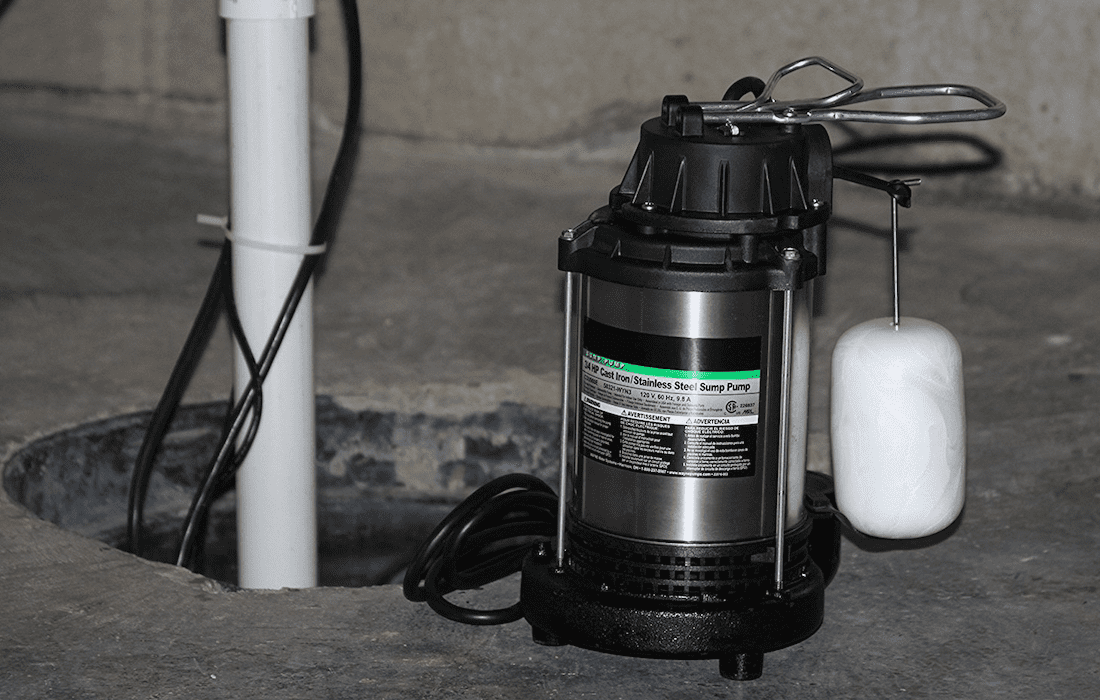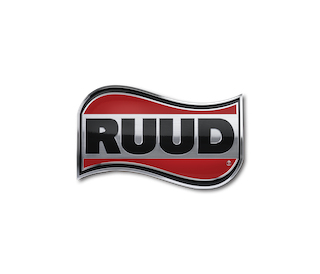In Central Kentucky, spring and summer seasons accumulate the highest yearly rainfall. With excess rain and water, flooding can become a reasonable concern for homeowners. Flash floods and emergency storms can leave your home liable to thousands of dollars in water damage if you haven’t taken steps toward preventing flooding.
If you are concerned about severe flooding this season, consider installing a sump pump. Sump pumps are designed to prevent flooding and may be the perfect solution for protecting your home from excess rainfall.
What Is a Sump Pump?
Sump pumps are devices that move water outside of your home in order to prevent flooding. These pumps are installed in your home inside a pit located in your basement. The pit, also called a basin, holds the pump in place and has a cover to keep the pump out of sight.
Each sump pump has a sensor that detects when water levels get too high in the case of accumulating water or moisture. When water reaches a certain level, the sump pump will drain the excess water outside and away from your home’s property.
How Do Sump Pumps Prevent Flooding?
These plumbing devices can prevent flooding in your home by pumping away any excess water that would otherwise pool in your basement. The pump will detect elevating water levels and kick on to drain the water away.
Afterward, the water is directed into a discharge pipe and carried away from your home’s foundation to a place where it can properly drain, such as in the sewer system. By doing so, you can prevent flooding in your home’s basement or crawlspaces.
Typically, sump pumps are powered by electricity; however, these pumps should always have a backup power source in the case of a power outage.
Types of Sump Pumps
There is not a one-size-fits-all approach when it comes to sump pumps. In fact, when deciding if a sump pump is right for you, there are a number of options to choose from.
First, there are two main types of sump pumps:
- Submersible: The pump and motor are one unit, which is submerged inside the basin. These pumps are often quieter, as they are completely closed in, but may not last as long as other pump types.
- Pedestal: The pump and motor are separate from one another, with the pump placed inside the basin and the motor sitting on a pedestal above it. A hose connects the two together, allowing water to be drained away. Because the motor sits on a pedestal, these types of sump pumps often have longer lifespans.
Additionally, sump pumps may have different types of backup power sources in the case of an outage. Some are battery operated, which allows the float switch to trigger even during an electric outage. With battery backups, it’s important to monitor battery life and ensure the battery is changed when needed to avoid flooding in your home.
Sump pumps can also be water powered. These work by clearing the basin with increased water pressure. The advantage of having water as a backup source means you never have to worry about changing the battery. However, they can significantly increase your utility bills, as they use extra water to power the pump.
Do All Homes Require a Sump Pump?
While sump pumps are a great way to protect against floods, only some homes may require one. Typically, homes without a basement don’t need one. However, homes with crawlspaces or those that experience the following issues can help determine whether a sump pump is needed in your home.
Pooling Water or Flooding
One of the easiest ways to determine if you should consider a sump pump is if your home has experienced flooding. Past flooding is the most significant indicator of future flooding.
If you notice puddles of standing water in or around your basement, installing a sump pump may be the perfect solution to prevent future floods and water damage.
Mold and Mildew Growth
If there is excessive moisture or water in your basement, then it can quickly become the perfect environment for mold, mildew, and fungus to grow.
If you have noticed frequent mold spots or mildew issues, your basement likely has a moisture problem. A sump pump can help eliminate these mold conditions by removing the excessive water from your basement. Removing additional water and monitoring the humidity levels can significantly reduce mold or mildew growth.
Humid Conditions
Pooling water and excessive moisture can damage your basement outside of mold and mildew growth. An unbalanced moisture level in your basement or home causes the corrosion of metal pipes, peeling paint, and warped wood furniture or flooring.
Elevated moisture can also create issues for your heating and cooling systems. This is because your heating and cooling system will have to work harder to produce the same temperature levels throughout your home. This issue may also lead to elevated energy bills and costly system repairs.
You may consider a sump pump if you have excessive humidity levels from pooling water or water damage. Removing this water from your basement can ensure your basement stays dry throughout the year.
How to Select the Right Sump Pump for You
You’ll need to consider multiple factors when selecting the right sump pump for your home. Sump pump cost is likely the most important factor, but can vary depending on a number of things. This may include:
- Type of sump pump
- Basement flooring material
- Drainage location
- Permits
- Professional installation costs
Additionally, you’ll need to consider what type of sump pump is best for your home, as well as the pump’s capacity to deliver water at a particular flow rate. Flow rate will vary from unit to unit and is affected by the depth of the basin and the pump’s horsepower.
For more information on sump pumps or to request a professional opinion, contact Fayette today. Our technicians offer installation, maintenance, and sump pump repair in Lexington and Central Kentucky.


 Skip to content
Skip to content








